
Browse our fun-packed, helpful plant-based articles, and delve deeper into this healthy, sustainable lifestyle!



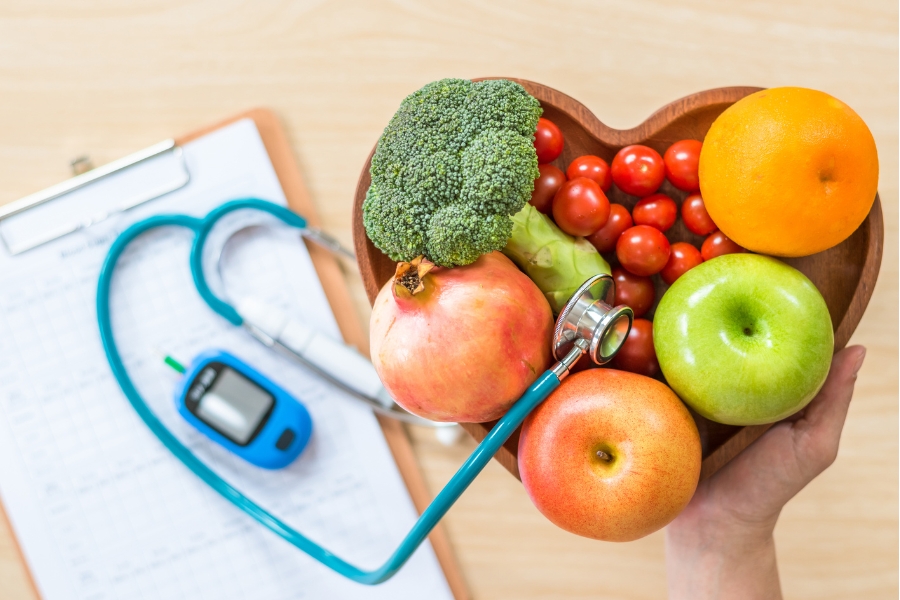
Balancing Blood Sugar Plant-Based: How a Vegan Diet Can Help Manage Diabetes
Plant-Based Weight Control For Women
Author: Plant-Based Susy
“When people who already have diabetes adopt a low-fat vegan diet, their condition often improves dramatically.” — Dr Neal Barnard.
A plant-based diet is a promising approach to preventing and managing diabetes — some of you may even reverse your type 2 diabetes. Our vegan diabetes ‘prescription’ is lip-smacking and incredibly easy to follow. Better yet, there’s no need to count calories or skimp on portions.
If you have diabetes, you can follow a whole-food plant-based diet to help manage insulin sensitivity, blood sugar, and shed pounds. However, you’ll need to ensure you’re getting sufficient protein and nutrients while avoiding excessive carbs and highly processed foods.
Studies show that a whole-food, vegan diet can help prevent and manage diabetes. Read on for a detailed overview of how a plant-based diet can help balance your blood sugar and manage diabetes — and how to incorporate these practices in your life.
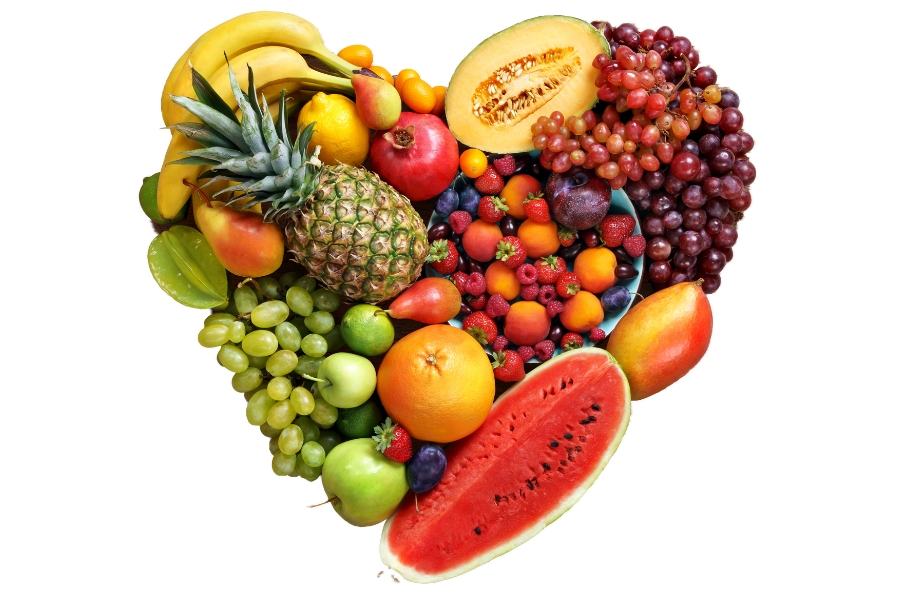
Table of Contents:
Can a Plant-Based Diet Manage Diabetes?
A high-quality, plant-based diet can help you balance your blood sugar and manage diabetes. Equally important, a vegan diet can even help address the bigger picture linked to diabetes by simultaneously treating heart disease, hypertension, obesity, and inflammation.
Over the past several years, much of what we were taught about diabetes has been flipped on its head. The latest understanding of the nutritional causes of diabetes empowers us to prevent or turn it around.
Here is what’s supposed to happen in your body: Your body is designed to turn starchy and sugary foods into glucose that your muscle cells use for fuel. Insulin then escorts the glucose into your cells.
If you have type 1 diabetes, your body does not make insulin properly. However, with type 2 diabetes, your body generally makes enough insulin, but your cells become resistant to it, leaving an excess of glucose in the bloodstream.
With uncontrolled blood sugar, you may experience excessive thirst, frequent urination, tiredness, and blurred vision. If you don’t manage your blood sugar, the spikes and troughs can lead to heart disease, kidney problems, nerve damage, and vision loss in the long run.
Type 2 diabetes accounts for around 90 to 95% of all diagnosed diabetes cases. The good news is that you can manage and even reverse type 2 diabetes through dietary and lifestyle changes. Health professionals often recommend following a low-fat, plant-based diet to help manage diabetes and other associated conditions.

Why the Vegan Diet Works for Diabetes
Vegan diets are mostly low in saturated fat and cholesterol (two culprits behind insulin resistance) while high in fibre. This helps your body regulate blood sugar and better absorb nutrients.
Plant-based diets are also rich in protective phytochemicals and antioxidants and reduce the risk of obesity. Therefore, a plant-based lifestyle suits the dietary guidelines for people with diabetes or pre-diabetes well.
Poor dietary choices like an increase in calorie-dense foods — fast foods, highly saturated or processed meats, refined grains, and refined sugar — are key drivers of insulin resistance and type 2 diabetes worldwide.
With an emphasis on diet quality, plant-based diets rich in high-quality whole grains, legumes, fruits, vegetables, nuts, and seeds have been shown to prevent and manage diabetes and improve glycaemic control and blood lipids in people with diabetes.
Vegan diets are also linked to far lower rates of obesity, heart conditions, hypertension, and cancer.
Benefits of a Vegan Diet for Diabetes
A vegan diet can help with diabetes management for both type 1 and type 2 diabetes. Researched-backed benefits of a plant-based diet for diabetes include balancing blood sugar, increasing insulin sensitivity, and promoting weight loss.
Here’s how a plant-based diet can help prevent or manage diabetes.
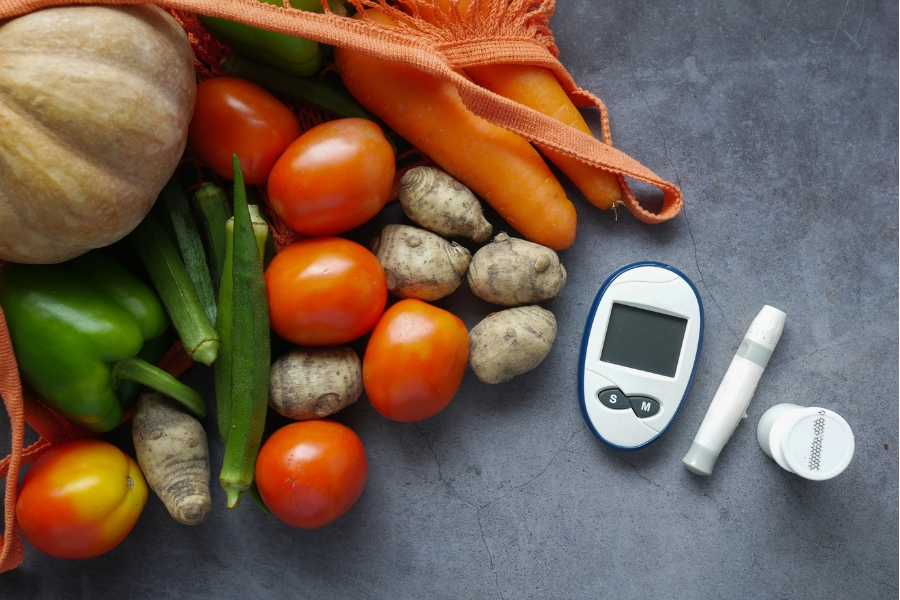
Balancing Blood Sugar
A study on people with diabetes compared the effects of following a conventional diet for diabetes (limiting calories and carbs) and a low-fat vegan diet. Researchers found that a vegan diet managed blood sugar three times more effectively than the conventional diabetes diet.
A plant-based diet significantly improves your HbA1c levels — a blood test used to measure a person’s average blood sugar levels across 3 months. This is a great indicator of long-term blood sugar management.
Dr. Barnard shares insightful information about turning around the diabetic epidemic — Tackling diabetes with a bold new dietary approach.
Enhancing Insulin Sensitivity
Following a plant-based diet can help manage diabetes by enhancing insulin sensitivity. It improves our “HOMA-IR levels” — an indicator of insulin resistance.
Diabetes is characterised by insulin resistance (when your body stops responding to insulin).
If you follow a diet rich in fatty foods, the fatty particles gradually build up inside your cells, interfering with insulin’s ability to transport sugar from your bloodstream into your cells. However, switching to a plant-based diet, lowers your fat intake, allowing insulin to function properly.
Improving insulin sensitivity can help reduce your need for insulin medication if you have pre-diabetes or diabetes.

Weight Management
A vegan diet does not only help you shed pounds naturally but keeps them off in the long run.
All foods from a vegan diet are plant-based: you’re eating beans, vegetables, fruits, and whole grains, all of which contain fibre. Fibre fills you up with effectively no calories.
Plants are also naturally low in fat, which helps you get away from a lot of unnecessary calories. Yes, that means you can toss the scale. There’s no need to weigh your portions when eating whole, unprocessed plant-based foods.
Lastly, a plant-based diet boosts your metabolism. Plants are loaded with vitamins, minerals, phytonutrients, and other phytochemicals that nourish the body and help increase metabolism.
At a cellular level, these plant nutrients improve the function of the mitochondria, dubbed the powerhouse of the cell.
Navigating a Plant-Based Diet with Diabetes
Transitioning to a plant-based diet offers numerous benefits for individuals managing diabetes. While there are considerations to keep in mind, they are easily addressed with thoughtful planning and awareness.
Enhancing Protein Intake
A plant-based diet can provide ample protein for individuals with diabetes. By incorporating a variety of whole plant foods such as tofu, tempeh, beans, lentils, quinoa, bulgur, nuts and seeds, you can ensure sufficient protein intake.
Here’s Vegan Susy’s guide to the Top 15 plant-based protein sources for a vegan diet.
While some plant-based protein sources may be incomplete, combining different sources throughout the day can easily provide all essential amino acids necessary for optimal health.
Here's a list of whole plant foods that contain all nine essential amino acids:
Purple potatoes: These potatoes have a rich purple skin and flesh, and they are packed with antioxidants like anthocyanins.
Red cabbage: This cruciferous vegetable is known for its deep purple colour and is rich in vitamins, minerals, and antioxidants.
Purple carrots: These carrots have a purple exterior and orange interior, offering a unique flavor and nutritional profile.
Eggplant (aubergine): A versatile vegetable with a deep purple skin, commonly used in dishes around the world, especially in Mediterranean cuisine.
Purple grapes: Grapes come in various colours, including shades of purple-red, which are often used to make red wine and are packed with antioxidants.
Purple cauliflower: Similar to white cauliflower but with a vibrant purple color, it's also rich in antioxidants and nutrients.
Blackberries: While not entirely purple, blackberries have a dark purple-black colour and are a delicious source of vitamins, fiber, and antioxidants.
Optimising Nutrient Intake
Whole food plant-based diets are rich in essential nutrients that support overall health. Poorly planned or predominantly junk food vegan and vegetarian diets can increase your risk of developing nutrient deficiencies, such as deficiencies in:
Vitamin B12
Vitamin B6
Zinc
Iodine
Iron
Calcium
Interestingly, omnivores alike can also find themselves deficient in these essential micronutrients, including vitamin B12 for one in twenty meat eaters.
Surprisingly, research indicates that B12 deficiency is far more prevalent than previously estimated, with at least 40 percent of Americans demonstrating suboptimal levels.
Consumers of animal products could also benefit from taking supplements or eating more fortified foods. However, you can get all these micronutrients in, and more, by purposefully including foods rich in these compounds.
Here are some fantastic plant-based sources of the nutrients mentioned above:
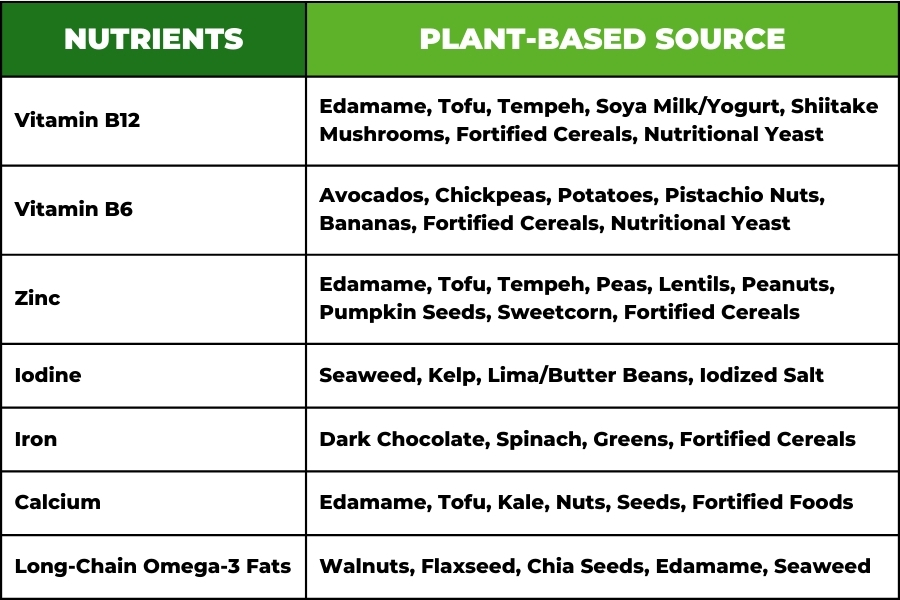
By embracing the abundance of nutrient-rich whole foods in a plant-based diet, individuals with diabetes can experience improved blood sugar control, enhanced insulin sensitivity, and a reduced risk of complications associated with the condition.
With proper planning and a focus on nutrient-dense plant foods, managing diabetes through a plant-based approach becomes not only feasible but also enjoyable and empowering.
Excessive Carb Intake
Plant-based diets can be high in carbohydrates, which can affect your blood sugar levels. Individuals with diabetes need to be careful not to overdo it by monitoring their carbohydrate intake and applying portion control.
Highly Processed Foods
Just because it is vegan doesn’t mean it’s healthy.
People with diabetes should avoid processed vegan foods high in salt, sugar, and saturated fats.
Vegan junk food tends to contain as much sugar and unhealthy fats as their non-vegan counterparts and they contain minimal vitamins and minerals.
Ultra Processed Foods (UPFs) are linked to weight gain, hypertension, an increased risk of type 2 diabetes, high blood pressure, cardiovascular disease, heart attacks, strokes, and early death.
Common UPFs include:
Ice cream, crisps, chips, mass-produced bread, breakfast cereals, biscuits, cookies, candy, carbonated drinks, fruit-flavoured yogurts, instant soups, pot noodles, and some alcoholic drinks including whisky, gin, and rum.
People with diabetes should limit or avoid using the following processed vegan foods:
Junk foods
Vegan sweeteners
Sweetened dairy-free milk
Mock meats and vegan cheeses
Instead, opt for a Whole-Food Plant-Based (WFPB) approach to avoid the unhealthy pitfalls of UPFs and shed a few pounds easily, in next to no time.
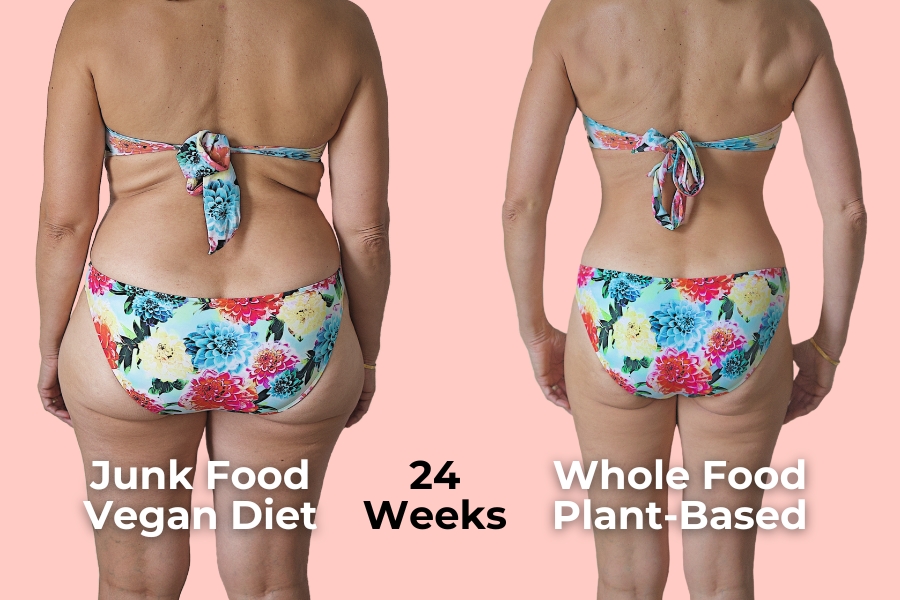
How to Follow a Plant-Based Eating Plan with Diabetes
Here are Vegan Susy’s top tips for success in developing healthy habits and following a plant-based diet to help with balancing your blood sugar and managing diabetes.
1. Plan Your Meals
Create a well-rounded meal plan. We like making sure our meal plan includes a variety of whole grains, legumes, non-starchy vegetables, and proteins to help bring harmony and balance your blood sugar levels.
2. Incorporate Non-Starchy Vegetables
Non-starchy vegetables like leafy greens, peppers, broccoli, courgettes (zucchini), and bean sprouts are low in calories and carbs and add essential micronutrients to your diet.
These veggies are mostly low-glycaemic, making them a great choice for balancing blood sugar. Consider adding them to your meals for additional texture, flavour, colour, and bulk.
3. Diversify Your Protein Sources
Protein can help you feel fuller and satisfied for longer, and it will also help stabilise your blood sugar.
Maximise your protein intake by diversifying your plant-based protein sources. Protein-rich whole plant foods include seitan, edamame, tofu, tempeh, legumes, whole grains, nutritional yeast, spirulina, nuts and seeds.
4. Limit Highly Processed Foods
Manage your diabetes by minimizing the amount of highly processed vegan foods and snacks you consume. The high levels of sugar, salt, and saturated fat can negatively impact your blood sugar control.
Try sticking to whole foods where possible. Snacks like nuts, seeds, fruit, roasted chickpeas, and vegetable sticks with nut butter or hummus are perfect for curbing hunger until your next meal.
There are plenty of healthy packaged snacks available. When shopping, pay close attention to nutrition labels and lean towards snack options with little to no added sugars, sodium, and saturated fats.
5. Choose Complex Carbs
If you have diabetes, you should emphasize a consistent intake of complex carbs to help manage your blood sugar levels. Carbohydrates have a more significant effect on blood sugar levels than protein and fats.
Complex carb foods contain ample fibre, vitamins, and nutrients and take longer to digest. As a result, they have less of an immediate impact on blood sugar, allowing your blood sugar to remain more consistent and preventing those unwanted sugar spikes and crashes.
Opt for complex carbs like lentils, whole grain pasta, wholewheat bread, brown rice, oats, quinoa, sweet potatoes, apples, bananas, yogurt, and berries.
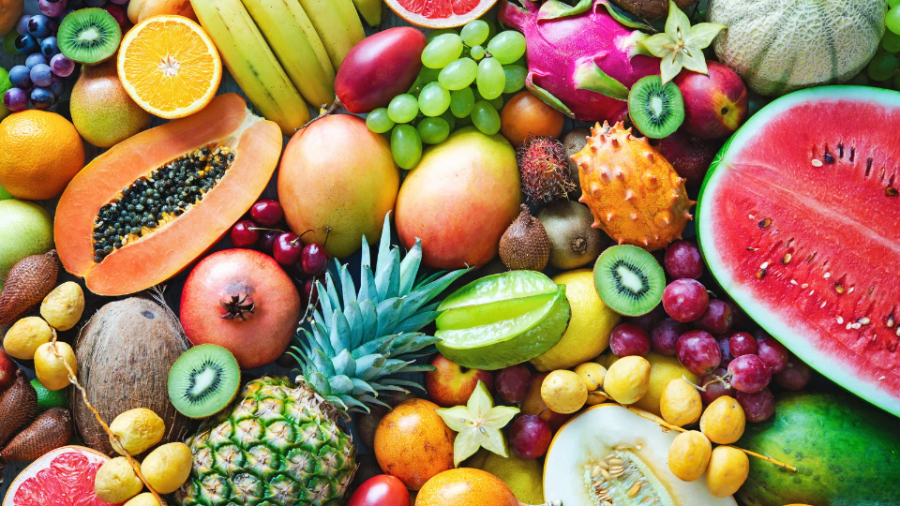
6. Eat the Rainbow
Eating a rainbow spectrum of colourful fruits and veggies will increase your natural macronutrient intake and help balance your blood sugar levels.
Different pigmented plants contain various unique phytonutrients and vibrant health benefits. Edible purple plants in particular are nutritional powerhouses.
Purple foods are a fascinating category that includes a variety of fruits, vegetables, and grains with vibrant purple hues. These are just a few examples of the many purple foods available, each offering unique flavours, textures, and health benefits.
Purple potatoes: These potatoes have a rich purple skin and flesh, and they are packed with antioxidants like anthocyanins.
Red cabbage: This cruciferous vegetable is known for its deep purple colour and is rich in vitamins, minerals, and antioxidants.
Purple carrots: These carrots have a purple exterior and orange interior, offering a unique flavor and nutritional profile.
Eggplant (aubergine): A versatile vegetable with a deep purple skin, commonly used in dishes around the world, especially in Mediterranean cuisine.
Purple grapes: Grapes come in various colours, including shades of purple-red, which are often used to make red wine and are packed with antioxidants.
Purple cauliflower: Similar to white cauliflower but with a vibrant purple color, it's also rich in antioxidants and nutrients.
Blackberries: While not entirely purple, blackberries have a dark purple-black colour and are a delicious source of vitamins, fiber, and antioxidants.
7. Supplement Wisely
While you can meet your nutritional needs easily by prioritising the right foods, some micronutrients like vitamin B12, vitamin B6, iron, and calcium can be elusive for many folks consuming predominantly processed foods, no matter their diet.
Nutritional professionals are observing that the majority of obese westerners addicted to ultra-processed foods or sticking strictly to the Standard American Diet (SAD) are in fact malnourished: Obesity is defined as a paradoxical state of malnutrition.
Omnivores, pescatarians, vegetarians, and vegans alike should consider supplementing wisely to make up for any micronutrient shortfalls in their diet.
Consult your doctor or dietician for personalised supplement recommendations to ensure you’re meeting your needs healthfully.
8. Monitor Your Blood Sugar
Even if you’re following a vegan diet, it’s important to regularly monitor your blood sugar if you have diabetes.
Consult your doctor or dietician if you notice concerning blood sugar patterns or spikes.
9. Seek Support
Connect with plant-based communities like Vegan Susy for additional support on your journey. Enjoy healthy plant-based recipes, success strategies, and sharing experiences.

Diabetic-Friendly Vegan Recipes
Choosing tasty plant-based recipes that are diabetic-friendly may feel like a tall order on your first round. Here are some of our favourite recipes you can experiment with when cooking:
Quick and easy Vegan Seitan
High Protein, High Fibre Vegan Lasagne
Tofu Scramble Breakfast
Plant-based Chili Burrito
No Oil Vegan Lentil Curry
And many more
Our favourite plant-based recipe is the Huevos a la Mexicana breakfast. It’s super tasty and offers a whopping 24 g of protein.
Frequently Asked Questions
Can a plant-based diet improve my diabetes?
A well-planned plant-based diet can improve your blood sugar levels and manage stress if you have diabetes. Choosing nutrient-dense vegan foods and being mindful of your carb intake helps manage your blood sugar and increase your insulin sensitivity.
Can a plant-based diet spike my blood sugar?
Highly processed, sugary vegan foods can cause your blood sugar levels to spike. Follow a whole-food, plant-based diet to improve your blood sugar control.
What plant-based foods help balance blood sugar?
High-fiber foods like beans, whole grains, leafy greens, and nuts help regulate blood sugar and prevent spikes.
Do I need to avoid carbs on a vegan diet for diabetes?
No, but focus on complex carbs like quinoa, lentils, and sweet potatoes rather than refined grains and sugars.
Can I reverse my diabetes with a plant-based diet?
You can prevent, manage, and reverse type 2 diabetes by following a balanced, whole-food vegan diet and avoiding highly processed foods. Focus on eating well-balanced meals that offer fibre, protein, and healthy fats to control your blood sugar levels and manage diabetes.
Conclusion:
It’s no secret that a nutritious diet and healthy eating patterns are key to preventing, managing, and reversing diabetes.
Incorporating whole, plant-based foods — whole grains, legumes, fresh fruits, vegetables, nuts, and seeds with a limited intake of overly processed foods — are highly beneficial for preventing and treating diabetes.
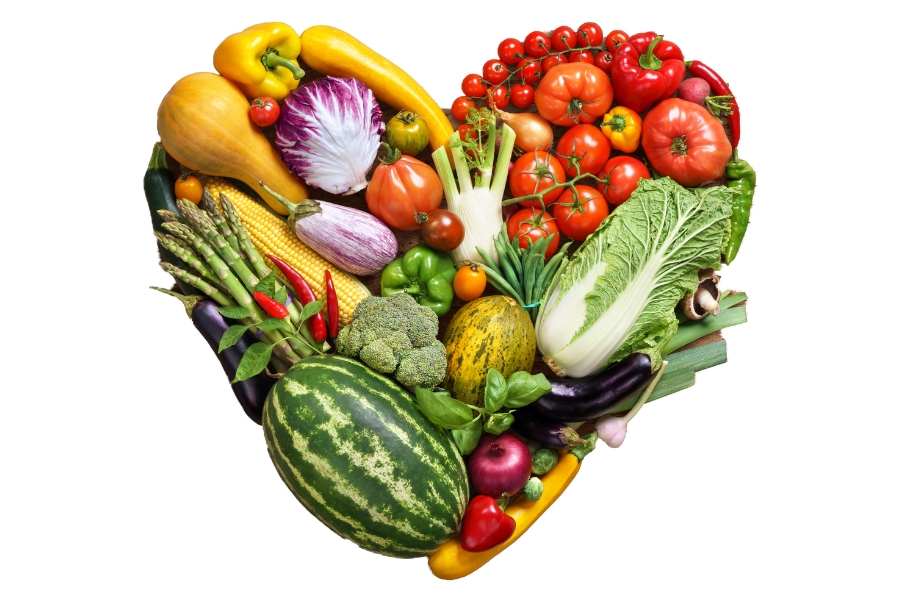
💚 "Happy Plant-Based Eating & Exercising!" 💚

Plant-Based Susy
Plant-Based Nutrition Professional & Weight Loss Coach
Empower Yourself: Embark on a Delicious Fat Loss Adventure

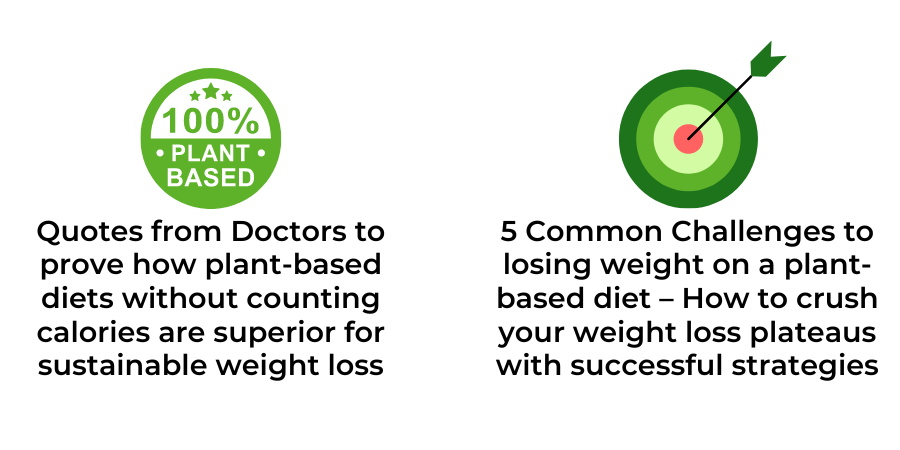
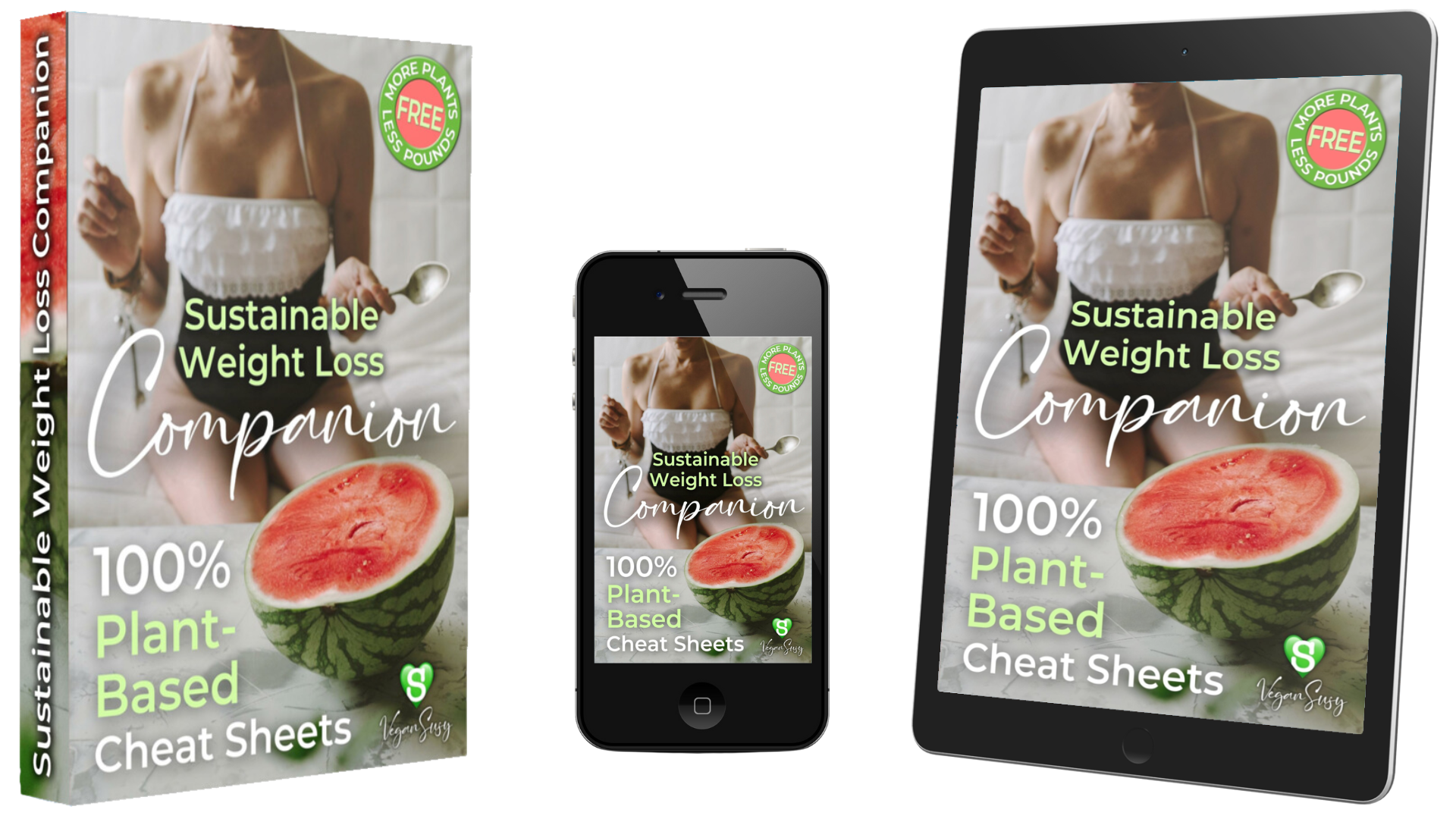
🍉 Get Ready to Jump Start Your Fitness Goals AND DISCOVER A HEALTHIER YOU!
🍉 Let's Make Your Fat Loss & Optimum Health Journey a Delicious Success Story!
🍉 Get The FREE Sustainable Weight Loss Companion eBook and CHEAT SHEETS!
More Free Resources
Unlock Your Transformation Today!
© 2025 VeganSusy Ltd. All Rights Reserved


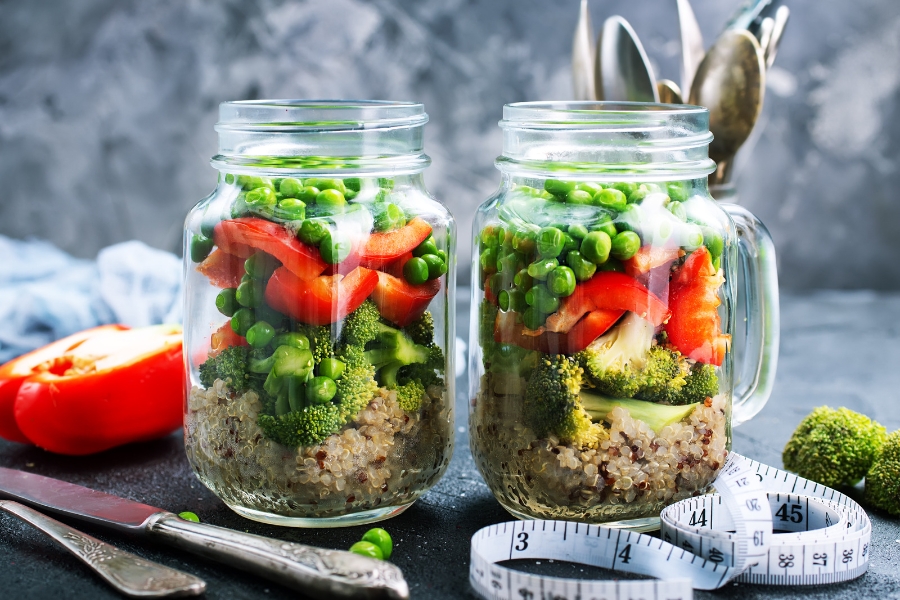
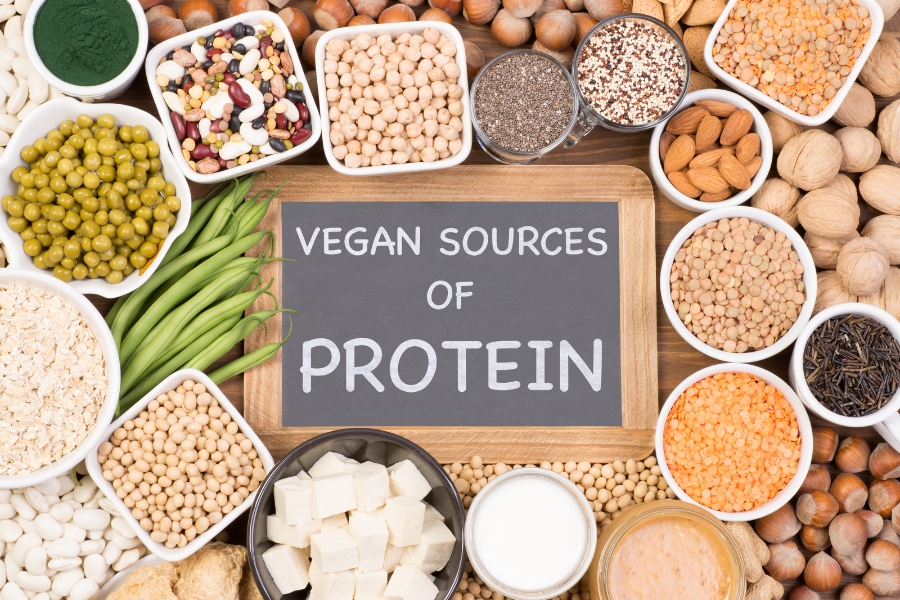







Facebook
Instagram
Youtube
Pinterest